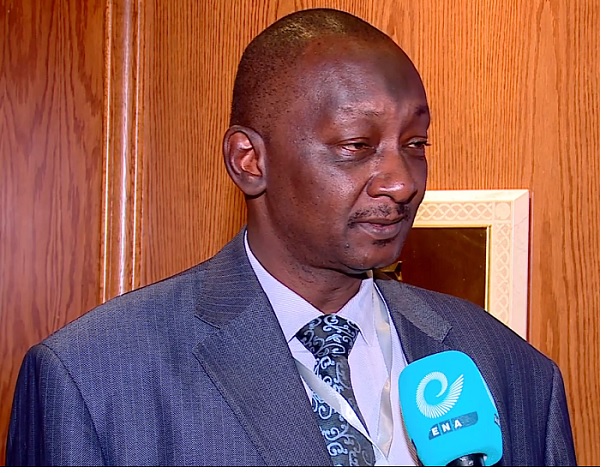Sudanese Experts Stress that GERD Benefits Downstream Countries - ENA English
Sudanese Experts Stress that GERD Benefits Downstream Countries

Addis Ababa September 9/2022/ENA/ The Grand Ethiopian Renaissance Dam (GERD) should be a source of cooperation because it will also benefit the downstream countries, especially Sudan and even Egypt, Sudanese experts said.
African Center for Governance, Peace and Transition Studies Secretary-General, Mahmoud Zainelabdin Mahmoud told ENA that GERD is crucial, especially to the people of Sudan, to cultivate three times a year as the hydro-dam will regulate the water flow, reduce mud, and flood.
“GERD has a lot of benefits to the people of Sudan in terms of regulating water so that the Sudanese people can plant for three agricultural seasons. It reduces mud and flood. Every year, Sudan faces floods that damage many of our cities and villages on the two sides of the basin. It will also produce us electricity and that is something so important for us in the future. The regulation of water will also open opportunities for socio-economic development in Sudan,” the Sudanese Secretary-General said.
According to him, the only way to come up with equitable, reasonable and sustainable utilization of water in the Nile Basin is to come up with the consensual approach that will be satisfactory to all.
The dam needs to be an area of cooperation rather than tension, an area of development rather than of dispute from time to time. “So, there are a lot of benefits that people can come together. If they think about cooperation and this cooperation needs strong institutions.”
He stressed that cooperation is needed rather than tension between the countries to ensure the expected benefits of GERD to Ethiopia and the downstream countries.

Former Minister of Irrigation and Water Resources of Sudan, Osman Atum noted on his part that utilizing the hydropower will have benefits for Sudan and even Egypt, beyond Ethiopia, and that needs coordination.
He pointed out that some 4 billion meter cube of water can be stored every year on the Ethiopian highlands with the completion of GERD that will significantly reduce the evaporation of the water in Egypt.
GERD “can maximize the benefits out of power generation of Ethiopia and maximize the benefits of having food from Sudan. Even Egypt could benefit because for Egypt, instead of storing water in the high Aswan Dam, it can be stored upstream in the highlands of Ethiopia because evaporation is less and there could be a saving of 4 billion meter cube per year. It can also go up to 6 billion meter cube per year.”
The former minister underscored the need for coordination of the system for the benefit of Ethiopia, Sudan, and Egypt.
“If you can coordinate the system together, then you can do that; and if you can save that amount of water, it will be for the benefit of the three countries together. They can use it for hydropower generation, for recreation, for irrigation and for everything and it could be a starter for such cooperation,” he added.
Atum underscored that the issue of the hydro-dam that does not consume water should not be politicized and its benefits to the downstream countries are undermined.
“The issue is very politicized, especially in Ethiopia and Egypt. Egypt, they are in a position that ‘whoever touched the Nile waters, they are going to suffer.’ This is not the case. This dam, GERD, is a hydropower dam, it uses water but it does not consume water and if this coordinated operation is done, then that would be better for them because water can be stored in the Ethiopian highlands and be released on regular basis downstream. That would be better.”
The hydropower dam can also be a source of affordable electricity and regulated water for irrigational activities to neighboring countries.